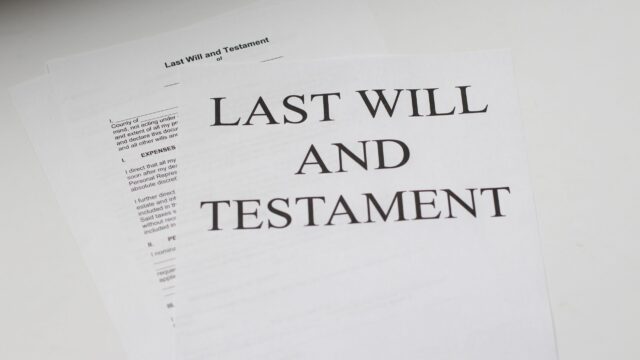When it comes to estate planning, there is a lot to consider. Read on for a brief overview of some of the documents you may want to create for your estate plan.
Documents you may Want to Consider Creating
- A will
- Trusts
- A power of attorney
- A healthcare directive
Will
A will is an essential aspect of an estate plan. It is one of the most important documents you can create. A will allows you to divide your assets amongst your loved ones. This will ensure that your wishes are followed and your loved ones are cared for. There are a lot of misconceptions regarding wills. For example, some people believe that you only need a will if you are of a certain net worth or you have children. This is not the case. Anyone over the age of 18 who owns property or has any assets can, and should, create a will.
Trusts
A trust is a fiduciary contract between a trustee and an estate in which the trustee is authorized to hold assets on behalf of a beneficiary. Generally, a trust is either revocable or irrevocable. There are trusts for many different situations.
In general, all trusts fall into one of two categories: (1) a revocable trust; or (2) an irrevocable trust.
- A revocable trust: the grantor can revoke the trust at any time during his or her lifetime. In other words, one can change their mind and go back to the drawing board if something changes.
- An irrevocable trust: specifically removes the property from the control of the grantor. Supplemental needs trusts and Medicaid asset protection trusts are common irrevocable trusts.
Power of Attorney
A power of attorney is a legal document that should be included in every estate plan. It allows you to put someone in charge of your finances and other important aspects of your life. Generally, there are two types of Powers of Attorney categorized based on when they go into effect. A durable power of attorney goes into effect at the moment it is executed, whereas, a springing power of attorney goes into effect at the moment of an event, such as incapacitation.
Healthcare Directive
An advance healthcare directive, which is sometimes referred to as a healthcare proxy, is a legal document that allows a competent adult to appoint another person as an “agent” to make decisions for them regarding health care. Everyone has different views and beliefs when it comes to their end-of-life care. This document makes clear your wishes. Additionally, you can appoint a loved one to make these decisions for you in the event that you are unable to.
If you are interested in beginning the estate planning process, contact our firm today.
Contact our Firm
If you or a loved one needs assistance creating an estate plan and wish to speak with an experienced attorney, contact the Law Office of Andres D. Gil, PLLC today.
 ?>
?>


